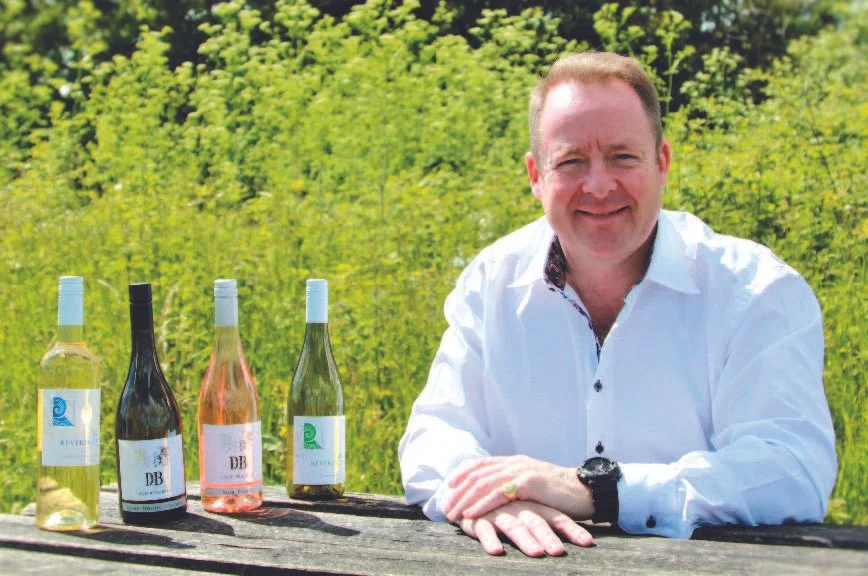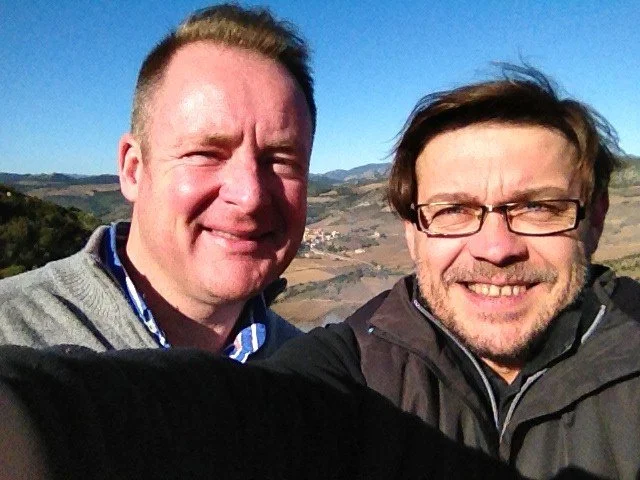Interview with David Rowledge – Founder of Alchemy Wines, Trade Member of the Old Vine Conference
What first sparked your interest in old vines, and how did your collaborations with passionate winemakers shape the vision for Alchemy’s Old Vine Series?
Since 2003, Alchemy has been using parcels of fruit from old vines in many of our best wines, including D&B, Sandpiper and Black Lagoon. These low-yielding, handpicked, single berry-selected grapes deliver backbone, depth and intensity to our blends. Old vines are tougher, with deeper root networks that draw up mineral-rich moisture from deep in the soil, helping them adapt to climate shifts and yield consistently high-quality fruit.
Their looser bunches and thicker skins give complexity, colour and aromatic intensity. Whites gain maturity and depth, while reds develop supple tannins and elegance. Our Old Vine Selection wines reflect balance—vines producing only what they can mature—and the result is wines with regional personality, aging beautifully in barrel and bottle. They require attentive winemakers who value quality over volume.
Can you tell us how Alchemy Wines evolved since its founding in 2002, and how the Old Vine Series came to life in the 2018 vintage?
Alchemy began as a creative project between myself and French winemaker, Boris Kovac, seeking wines with character and authenticity. The 2018 Old Vine Series launch marked a shift from blending to celebrating these venerable vineyards individually. That centennial Carignan was our first step, and since then, we've expanded globally—while staying true to our ethos of collaboration and storytelling.
I’d been working with Boris before founding Alchemy in 2002. We came across stunning old vine Carignan and Grenache, planted in 1918. Their wines were aging in old wooden vats—not quite the Alchemy style—so I experimented by aging some in second-fill American oak. The result was beautifully layered, with added complexity and softness. That Carignan became the backbone of many blends, and in 2018, when the vineyard turned 100, we launched our first Alchemy Old Vine varietal. Sadly, due to COVID pressures, the owners sold in 2023, and the vines are now lost.
David & Boris
You’ve spoken about wanting to save “great old parcels being lost in a co-op’s tank or grubbed up.” What drives your commitment to preserving these historic vineyards?
Too many old vines get lost to high-yield blending or replaced with more “commercial” varieties. Many growers don’t have the incentive—or the means—to preserve them. If Alchemy can step in, influence winemaking, and support growers, we’re doing our part. It’s about valuing heritage over volume.
Alchemy partners with growers and winemakers across the globe. How do you identify worthy old vine parcels, and what do you look for in your collaborators?
We look for like-minded, collaborative people. Many of our partners—across Europe, Australia, and South America—have standard vineyards but allocate volumes of their old vine fruit specifically for us. Long-term relationships and mutual trust are essential.
The Old Vine Series spans regions from France and Georgia to Australia and South Africa. How do you ensure each wine tells a story rooted in place, history, and craftsmanship?
Each parcel has its own timeline and identity. We build the story around that—working with the winemakers to craft something authentic. The goal is a wine that reflects its origins and honors the vines that made it possible.
What’s your approach to working with growers to protect old vines while also building a commercially viable future for them?
It’s always a balancing act. We couldn’t sell enough of the 100-year-old Carignan to save the vines. But where we can, we pay more for lower yields, and bottle limited runs with serialized labels to reflect their rarity. Most partners understand and support this approach.
How do you see the role of fair pricing and grower relationships in sustaining the legacy of old vine vineyards?
Transparency is key. Alchemy runs lean, with low overheads and direct shipping from our winemaking partners to international markets. That allows us to maintain fair pricing and offer competitive Old Vine wines without compromising quality—or grower compensation.
From your perspective, what makes old vine wines unique in terms of quality, expression, and longevity?
Wines from old vines bring layered complexity and depth. Working with people like Xavier Vignon in the Rhône demonstrates how experienced winemakers can draw out this character. It’s about understanding what the vines are capable of and crafting with care.
What have been some of the most rewarding—or challenging—moments in building Alchemy’s Old Vine Series across so many countries and cultures?
Time and bandwidth. We’re a small team, working across nearly 20 countries. One highlight was being the first to put a stand-alone old vine wine in a Frugal Bottle—combining ecological innovation with viticultural heritage. That alignment of sustainability and storytelling was truly rewarding.
Looking ahead, what’s next for Alchemy Wines and the Old Vine Series, and how do you see your role within the growing global movement to preserve old vines?
We’ll keep building on what we’ve started—working with current partners and expanding where it makes sense. I’ve just come back from Sicily, exploring old vine Insolia, Lucido, Grillo, and Perricone. They’re stunning, and I hope to introduce them to our international markets. It’s tough out there, but if we keep telling these stories and making great wines, we can keep old vines alive.


